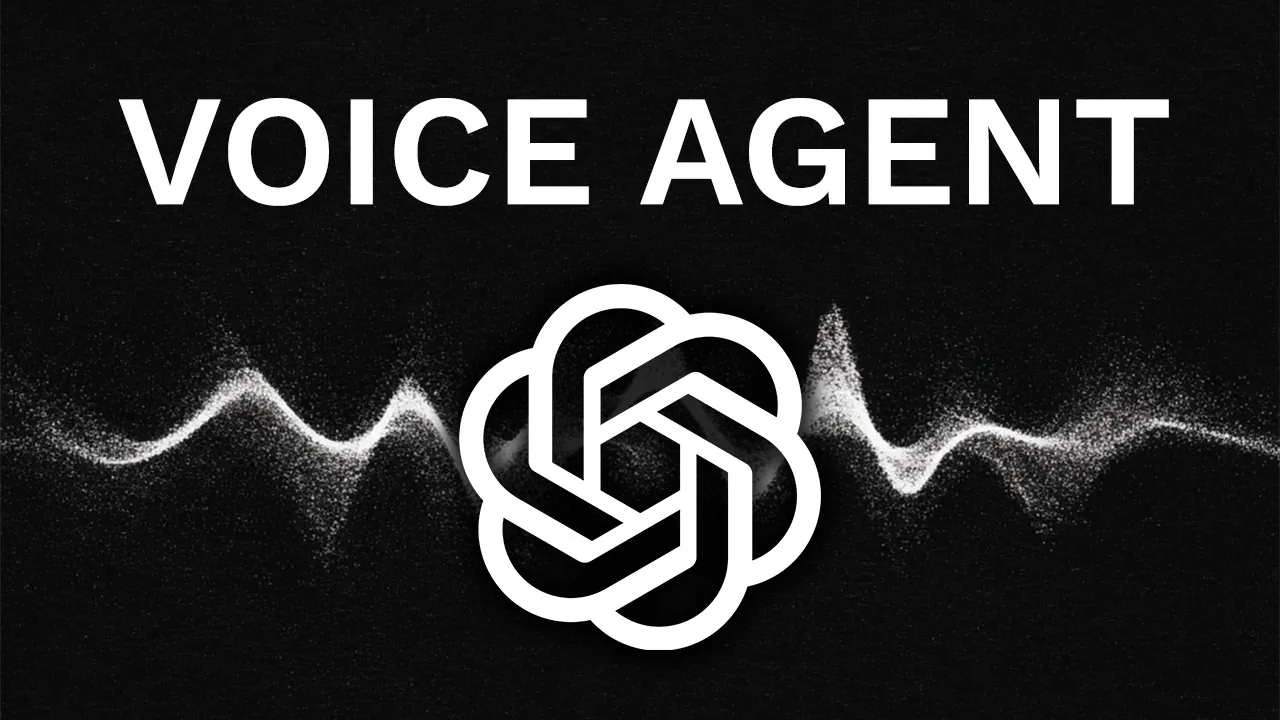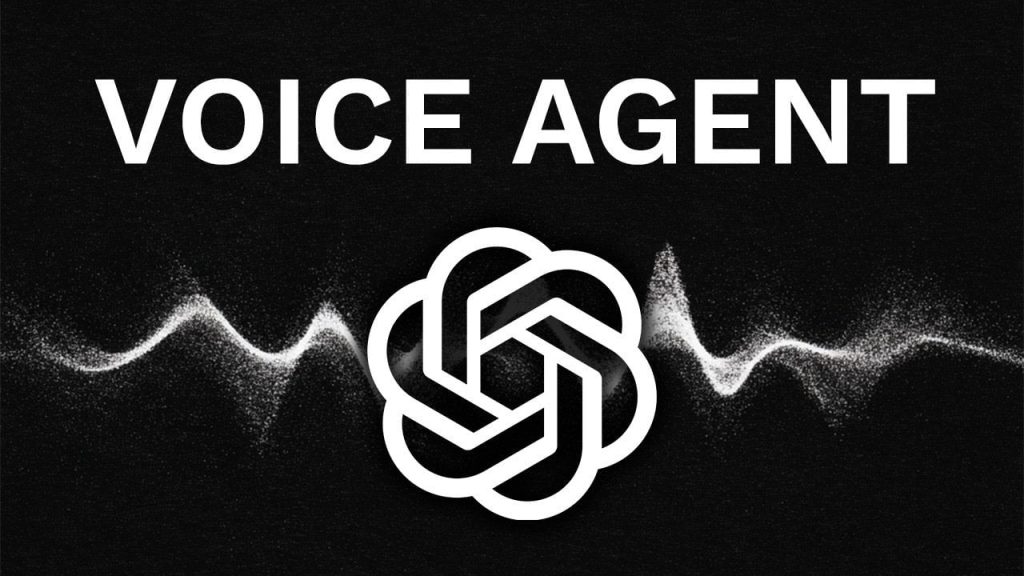
What if you could have a conversation with technology that feels as natural as chatting with a friend? Imagine an AI voice agent so advanced it not only understands your words but also your intent, adapting its tone and responses to match your needs. Bold claim? Perhaps. But with modern voice AI achieving a staggering 95% accuracy in mimicking human speech, this is no longer a distant dream, it’s today’s reality. From managing your schedule to handling complex customer service tasks, these intelligent systems are redefining how we interact with technology, making it more intuitive, efficient, and even human-like. The question isn’t whether voice AI can do it all, it’s how far it can go.
In this overview, David Ondrej explores the fantastic potential of these AI voice agents and the new technologies that power them, like natural language processing and advanced speech recognition. You’ll discover how they’re reshaping industries, bridging accessibility gaps, and offering practical solutions for everyday challenges. Whether it’s automating repetitive tasks, syncing with tools like Google Calendar, or providing 24/7 customer support, these agents are becoming indispensable. But the story doesn’t stop at functionality, there’s an emotional angle too. How does it feel to trust a machine that sounds almost human? Let’s unpack the implications of this evolving relationship and what it means for the future of communication.
Voice AI Agents
TL;DR Key Takeaways :
AI voice agents are transforming human-computer interaction by offering efficient, intuitive, and accessible solutions for tasks like scheduling, customer service, and automation.
Voice AI is widely adopted across industries such as healthcare, retail, and professional services, enhancing operational efficiency and freeing up human resources for strategic tasks.
Technological advancements, including natural language processing (NLP) and speech recognition, enable voice agents to sound human-like, understand context, and adapt to specific brand identities.
Accessible development tools like NA10 and Retool simplify the creation of voice AI agents, allowing users with minimal technical expertise to design and deploy customized solutions.
Voice AI offers significant monetization opportunities for developers and entrepreneurs through niche market solutions, hosting services, and pre-built agent offerings tailored to industry-specific needs.
The Growing Importance of Voice AI in Communication
Voice AI is rapidly emerging as the preferred method for human-computer interaction, offering a faster and more intuitive alternative to traditional text-based systems. Whether you’re booking appointments, managing schedules, or automating customer interactions, voice agents provide seamless and natural communication experiences.
Their ability to understand and respond to spoken language makes them particularly valuable in regions with lower literacy rates, where voice-based systems offer a more intuitive and accessible solution. This capability bridges gaps in digital communication, making sure that technology remains inclusive and user-friendly.
Industry Adoption and Market Expansion
The adoption of voice AI is accelerating across industries, driven by its ability to handle routine tasks efficiently. Businesses in sectors such as healthcare, retail, and professional services are using voice agents to free up human employees for more complex and strategic responsibilities.
For example:
Healthcare providers use voice agents to schedule patient appointments and send reminders.
Retailers deploy them to process orders, manage inventory inquiries, and provide customer support.
Professional services firms use voice agents to handle client inquiries and streamline administrative tasks.
This widespread adoption highlights the growing demand for automated solutions that enhance operational efficiency while maintaining a high standard of service.
This AI Voice Agent Can Do Anything
Take a look at other insightful guides from our broad collection that might capture your interest in Voice AI.
Technological Innovations Enhancing Realism
Modern AI voice agents are designed to sound remarkably human, with over 95% of users unable to distinguish them from actual human voices. Features such as customizable tones, natural pauses, and ambient sound effects contribute to their authenticity. These advancements are powered by innovative technologies like natural language processing (NLP) and speech recognition, allowing voice agents to:
Understand context and intent in conversations.
Respond accurately to complex or nuanced queries.
Adapt their tone and language to align with specific brand identities.
These technological breakthroughs are setting new benchmarks for voice AI, making it a reliable and versatile tool for businesses and individuals alike.
Accessible Development Tools for Voice AI
Creating a voice AI agent is no longer a task reserved for expert developers. Tools like NA10 and Retool have simplified the development process, making it accessible to users with varying levels of technical expertise. These platforms offer intuitive interfaces and integration capabilities, allowing you to design and deploy functional voice agents with ease.
NA10: Provides a user-friendly interface for designing conversational flows and customizing agent behavior.
Retool: Assists seamless integration with external applications, such as Google Calendar, to enhance functionality.
By using these tools, you can create customized voice agents tailored to your specific needs without requiring advanced programming skills.
Practical Applications of Voice AI
AI voice agents excel in automating repetitive tasks, making them highly versatile across various applications. Their ability to integrate with existing tools and systems further enhances their utility. For instance:
In scheduling, they can sync with tools like Google Calendar to manage appointments and send reminders.
In customer service, they handle inquiries, process orders, and provide 24/7 support, making sure consistent service delivery.
Industry-specific solutions include barber shops using voice agents to confirm bookings or real estate agencies deploying them to answer property-related questions.
These real-world applications demonstrate the practical value of voice AI in improving efficiency and user experience across different domains.
Monetization Opportunities in Voice AI
The rising demand for voice AI presents significant opportunities for developers and entrepreneurs. By creating pre-built or customized voice agents, you can cater to businesses seeking to enhance their operations. Specializing in niche markets, such as healthcare or retail, allows you to:
Streamline development efforts by focusing on specific industry needs.
Offer tailored solutions that address unique challenges within those sectors.
Additionally, providing hosting services through platforms like VPS can serve as an additional revenue stream, further expanding your business potential. This dual approach of development and hosting positions you to capitalize on the growing voice AI market effectively.
Steps to Implement a Voice AI Agent
Deploying a voice AI agent is a straightforward process that can be completed in a few hours. Here’s a step-by-step guide:
Use NA10 to design the agent’s conversational logic and customize its responses.
Integrate the agent with external tools like Google Calendar using Retool to enhance its functionality.
Host the agent on reliable platforms, such as VPS services, to ensure consistent performance and accessibility.
By following these steps, you can create a fully functional voice AI agent ready to optimize your operations and improve user engagement.
The Evolving Landscape of Voice AI
Voice AI is poised to surpass text-based systems in adoption, driven by its convenience and accessibility. Its ability to offer intuitive communication solutions makes it an ideal choice for businesses and individuals alike. In regions with lower literacy rates, voice agents play a crucial role in bridging the digital divide, making sure that technology remains inclusive.
Advancements in NLP and speech recognition continue to push the boundaries of what voice AI can achieve. As these technologies evolve, they open the door to even more sophisticated applications, solidifying voice AI’s position as a fantastic force in the tech landscape.
Media Credit: David Ondrej
Filed Under: AI, Top News
Latest Geeky Gadgets Deals
Disclosure: Some of our articles include affiliate links. If you buy something through one of these links, Geeky Gadgets may earn an affiliate commission. Learn about our Disclosure Policy.

